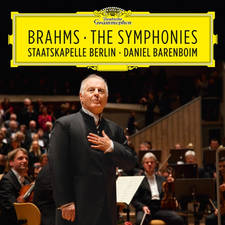The Full Works Concert - Tuesday 27 May 2014
Saint-Saens, Mozart, Grieg, Rossini and Delius are the classical giants making up tonight's Concert.
Rossini's overture for The Thieving Magpie opens the concert. The opera tells the story of a servant accused of stealing a silver spoon but, at the last minute, his master's magpie is found to be the true culprit. The title is a bit of a spoiler for the mystery really.
For nearly 200 years, it was believed that Mozart's Flute Concerto No. 2 in D major was indeed composed for the flute. However it wasn't until 1952 that a musicologist proved that the piece was a reworking of an earlier Oboe Concerto. Mozart apparently used the work in an attempt to get himself out of an embarrassing situation: an amateur flautist commissioned three flute concertos. Only one exists from this period and it is most likely that Mozart revised the Oboe Concerto to present as a new flute concerto. Mozart managed to produce a flute part so convincing that, for centuries, the work was praised as an original flute concerto.
Many a TV advertisement has used the opening movement, 'Morning' from Grieg’s Peer Gynt Suite No.1 to create the right mood. The fourth movement depicting life 'In the Hall of the Mountain King', meanwhile, will forever be remembered as the Alton Towers theme tune. Grieg, however, had very different ideas at the forefront of his mind when he composed this glorious music. He had been asked by the playwright Henrik Ibsen to set to music his quintessentially Scandinavian play Peer Gynt. The composer responded by creating a collection of tableaux, some of which were later formed into two separate suites. He didn’t have much faith in them, feeling under pressure from Ibsen to come up with the melodies as quickly as possible, but they were received with huge enthusiasm by the Norwegian audiences of his day.
The works we most commonly associate with Saint-Saens come from the 1870s and 1880s when he was at the peak of his fame. These include Danse Macabre, the opera Samson and Delilah, the 'Organ' Symphony, Carnival of the Animals and his first Cello Concerto. It was written for the cellist and educator Tolbecque who was doing much at the time to enhance the status of the cello. What makes Saint-Saens' concerto unusual is the way he condenses the conventional concerto's three-movement formula into a compact single movement of about 20 minutes. Additionally, he carefully integrates the cellist into the orchestral fabric rather than staging the usual battle between soloist and orchestra.
The fifth of Bach's keyboard suites "for the English" follows the usual pattern, a series of French dance movements given a Germanic twist. It's played tonight by the pianist Angela Hewitt.
Paris: The Song of a Great City is a nocturne for orchestra composed by Frederick Delius over the period of 1899-1900. Whilst the work drew upon Delius' own memories of his residence in Paris, the work is not a literal depiction, but more impressionist in nature. In his sketches for the piece, the composer wrote a series of impressions such as 'mysterious city,' 'city of pleasures,' 'of gay music and dancing.' These images are painted in music with brushstrokes ranging from delicate to bold.
Gioachino Rossini: The Thieving Magpie – Overture
Yehudi Menuhin conducts Sinfonia Varsovia
Wolfgang Amadeus Mozart: Flute Concerto in D major K.314
Flute: Jacques Zoon
Claudio Abbado conducts Orchestra Mozart
Edvard Grieg: Peer Gynt Suite No.1
Neeme Jarvi conducts the Gothenburg Symphony Orchestra
Camille Saint-Saens: Cello Concerto No.1 in A minor Opus 33
Cello: Andreas Brantelid
Michael Schonwandt conducts the Danish National Radio Symphony Orchestra
Johann Sebastian Bach: English Suite No.5 in E minor BWV.810
Piano: Angela Hewitt
Frederick Delius: Paris - The Song of a Great City
Andrew Davis conducts the Royal Scottish National Orchestra











